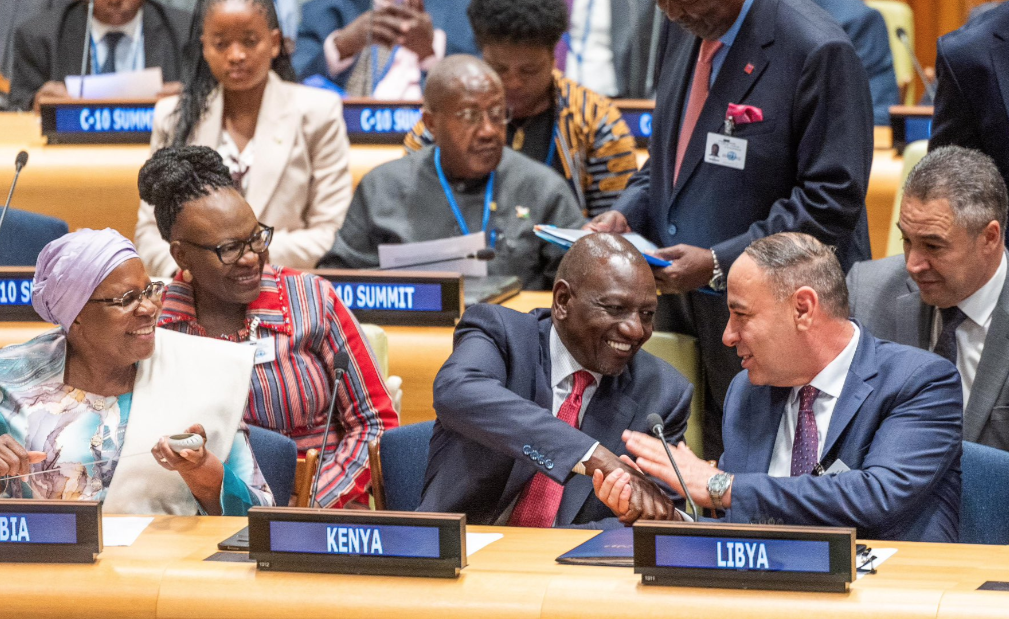

President William Ruto has praised the achievements of the Multinational Security Support (MSS) Mission to Haiti, led by Kenyan police officers.
He called on the international community to urgently support the deployment of a successor mission as the United Nations Security Council prepares to make a critical decision in the coming days.
Speaking during a high-level side event on Haiti at the United Nations General Assembly in New York, Ruto outlined what he termed as "transformative gains" made in Haiti since the deployment of the MSS mission — despite facing severe challenges, including resource shortages and slow troop deployment.
“Thanks to the MSS, the situation today is markedly different,” Ruto said, highlighting a shift in security and stability in a country previously gripped by gang violence and lawlessness.
The MSS mission was authorised by UN Security Council Resolution 2699, with Kenya designated as the lead nation.
On June 25, 2024, the first batch of 200 Kenyan police officers arrived in Port-au-Prince, taking on a mission many considered improbable due to the extreme security risks in the Caribbean nation.
Fifteen months later, the MSS has grown to include 989 police personnel, drawn from Kenya (735), Guatemala (150), El Salvador (78), Jamaica (23), Bahamas (3) and Canada (1).
Yet, Ruto pointed out that the mission remains understrength, with current personnel at less than 40 per cent of the intended force of 2,500.
“Despite inadequate and unpredictable resources, the MSS has registered undeniable success,” he said.
According to President Ruto, the impact of the MSS has been visible and substantial
He noted that the police Headquarters has been reclaimed by the Haitian National Police (HNP), schools have reopened, and students are now graduating, roads and highways, previously under gang control, are now open, and police academy training has resumed, with 750 new recruits graduating.
He added that 70 senior officers are undergoing leadership courses, adding that Port and airport operations (both cargo and passenger) have recommenced, with cases of kidnapping and extortion having significantly declined.
He pointed out that police stations in Ouest and Artibonite, once overrun by gangs, have been recaptured
“When we deployed our officers, we were clear in our minds that while the MSS was a critical and innovative intervention, it was not the ultimate solution. We knew that Haiti’s stability could only be accomplished through a multi-pronged approach that addressed the root causes of the challenges,” Ruto said.
He emphasised that the MSS immediately built synergy with the Haitian National Police, resulting in joint operations that rapidly improved the security landscape in key regions.
Ruto defended Kenya’s leadership of the mission as part of its long-standing tradition of peace support operations around the world.
“When Kenya heeded the request by Haitian authorities, it was to join a global multinational effort. Drawing on our decades of peace support operations, we stepped up, offered to lead, and committed to deploy Kenyan police officers to help tackle the runaway menace of gang violence in Port-au-Prince and its environs,” he said.
He called for renewed international support and collective commitment, noting that the MSS cannot succeed without sustained funding, full troop deployment, and a comprehensive political and development strategy.
With the UN Security Council expected to vote in the coming days on a successor mission to the MSS, Ruto’s remarks were a clear call to action for the global community.












